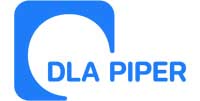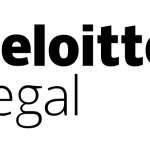DLA Piper’s Jian-Cheng Ku and Rhys Bane provide the latest updates on an ongoing employee stock option tax proposal in The Netherlands
On September 21, 2021, the Dutch government published its 2022 budget proposals, which included a set of tax proposal that mostly took effect as of January 1, 2022 (the 2022 tax plan). The 2022 tax plan included a proposal that would change the moment employee stock options would be taxed in the Netherlands.
Because of critical questions from the Dutch House of Representatives (Tweede Kamer der Staten-Generaal) and, in extension thereto, the risk of the Netherlands granting state aid as a consequence of an amendment proposed by a number of political parties, the legislative proposal was put on hold until a thorough review had taken place.
By letter of April 4, 2022, the Dutch State Secretary of Finance reported the findings of the review. The Dutch government has, based on its review, concluded that it will put forward the legislative proposal as-is, only amending the effective date to January 1, 2023.
Current taxation of employee stock options
The Netherlands has a specific tax regime for the taxation of income from the sale or exercising of such employee stock options. Under these rules, the right to acquire shares in the company that employs an individual or rights of a similar nature (an ‘employee stock option’) is only taxable upon sale or exercising. This means that upon exercising the employee stock option, the fair market value (less any costs on the side of the
employee) is taxable, requiring the employer to withhold
up to 49.5% Dutch wage tax on these shares.
As the employer has to remit the tax to the Dutch tax authorities in cash, this may require the employer to sell of a part of the shares the employee is entitled to or to withhold on the employee’s cash salary. As this may be more difficult for privately held companies, given the illiquidity of the company’s shares, the legislative proposal put forward by the Dutch government in the 2022 Tax Plain aims to improve the liquidity position of privately held companies, with a focus on start-ups and scale-ups.
Currently, there is a tax incentive for start-ups and
scale-ups that decreases the tax base by 25% for certain qualifying companies that grant up to €50,000 in employee stock options to each individual annually. However, given the strict requirements (the company must have an R&D declaration from the Netherlands Enterprise Agency and the employee stock option must have been granted at least 12 months prior, but no longer than 5 years ago), this tax incentive in practice is rarely used.
Other rights that do not qualify as employee stock options (such as stock-settled restricted stock units) are taxed as in-kind wages taxable at the moment the right becomes unconditional. This is generally the case once the restricted stock units are settled in stock.
Proposed taxation of employee stock options
The legislative proposal would result in the introduction of a different moment for the taxation of employee stock options. If a company’s shares are not yet tradeable, the employee stock options would be taxable either upon sale of the options
or upon the shares becoming tradeable (and not upon exercising of the employee stock option). The legislative proposal should improve liquidity of privately-held companies, as the Dutch wage tax (and social security contributions) over this salary component would have to be withheld remitted later.
The proposed rules also contain an option for later taxation if there is a lock-up period. The lock-up period is respected for up to five years.
Currently, there is a tax incentive for start-ups and scale-ups that decreases the tax base by 25% for certain qualifying companies that grant up to €50,000 in employee stock options to each individual annually.
Employees may, however, choose to still pay tax at the moment the employee stock options are exercised (as opposed to the moment they become tradeable).
The flipside of the deferral in taxation is that if the employer and the employee choose for taxation at the moment the acquired shares become tradeable, the taxable base is determined on the basis of the fair market value at the moment the shares become tradeable. This fair market value may, for example due to an IPO, be significantly higher than the fair market value at the moment of exercising. Consequently, more Dutch wage tax and social security contributions would have to be paid.
Key takeaways
In the letter to the Dutch House of Representatives, the Dutch State Secretary of Finance has indicated not intending to expand the favorable tax treatment to other instruments than employee stock options.
This means that incentives for employees in the Netherlands should be reviewed in order to assess whether these should be modified in order to be able to make use of the more favorable tax treatment, as the legislative proposal does not apply to all equity-based incentives.
In the letter to the Dutch House of Representatives, the Dutch State Secretary of Finance has indicated not intending to expand the favorable tax treatment to other instruments than employee stock options.
It is also important to note that in principle, employees are entitled to choose to pay tax at the moment the employee stock options are exercised by notifying their employer ultimately at the moment of exercising of the employee stock options. This requires employer to be able to withhold sufficient cash in order to remit this tax to the Dutch tax authorities. Given that the employee in principle has this right, it is important for employers to clearly document if and how this right can be exercised by employees.
Given the difference in taxable base if employee stock options are taxed at the moment of exercising versus the moment the acquired shares become tradeable, with the latter generally resulting in a higher tax base, the liquidity benefit of not having to pay tax at the moment of exercising the employee stock options should be carefully weighed against the impact of shares becoming tradeable may have on the tax base.
Finally, based on the guidance currently available, ‘tradeable’ does not necessarily mean that a company must be public. Even if shares can be bought and sold in a closed setting, for example, among employees, this may qualify as tradeable within the meaning of the legislative proposal. This should be carefully monitored in order to prevent the filing of incorrect tax returns due to mistakenly not taking into account the capital gain at
the moment the shares become tradeable.

Jian-Cheng Ku

Rhys Bane














